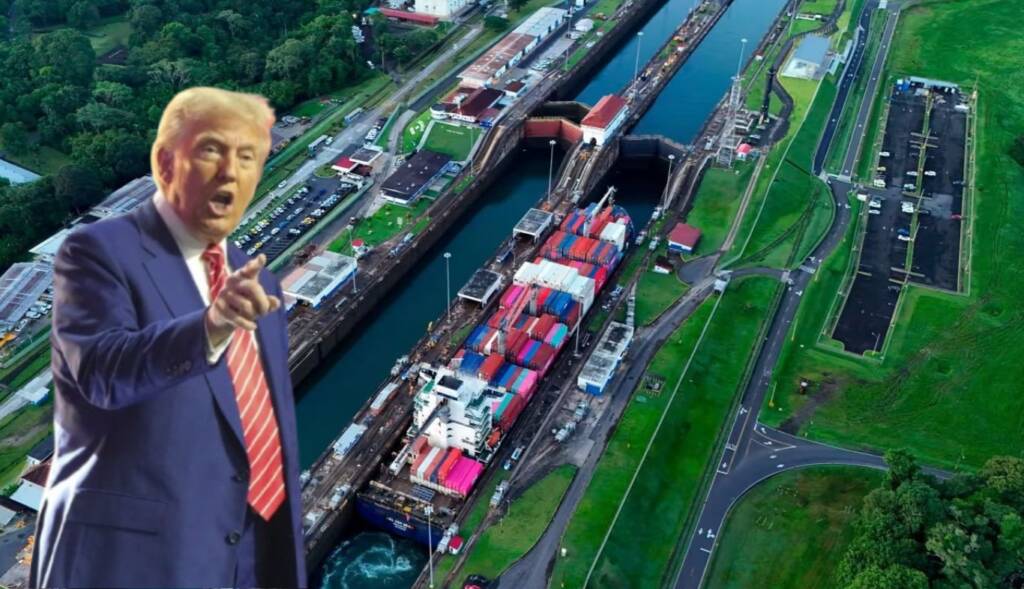On December 21, the President-elect of the United States Donald Trump accused Panama of charging excessive rates for use of the Panama Canal and said that if the country did not manage the canal in an acceptable fashion, he would demand the country to hand it over. The Panama canal is an artificial waterway connecting the Atlantic and Pacific oceans and is an extremely important economic and geostrategic point especially for the United States.
In an explosive post on Truth Social, Trump wrote “Our Navy and Commerce have been treated in a very unfair and injudicious way. This complete ‘rip-off’ of our Country will immediately stop. The fees being charged by Panama are ridiculous, especially knowing the extraordinary generosity that has been bestowed to Panama by the U.S.”
“It was not given for the benefit of others, but merely as a token of cooperation with us and Panama. If the principles, both moral and legal, of this magnanimous gesture of giving are not followed, then we will demand that the Panama Canal be returned to us, in full, and without question.” he stated.
Importance of the Panama Canal
The Panama Canal is an artificial waterway connecting the two great oceans as well as the continents of South America and North America. The construction of the Panama Canal had long been envisioned, simply because moving from one ocean to the other by going around the tip of South America was quite costly and time-consuming. It was built between 1904 and 1914, largely thanks to the United States. Until then, building a canal was considered difficult due to the region’s uniquely challenging geography. France had previously abandoned similar efforts due to its high costs.
But that did not deter the United States. President Theodore Roosevelt, in a speech to Congress, said about the project, “No single great material work which remains to be undertaken on this continent… is as of such consequence to the American people.”
The country of Colombia controlled Panama until 1903, when a US-backed coup helped Panama achieve independence. In exchange, the US received rights to build and operate the canal and permanent rights to the Panama Canal Zone through the Hay-Bunau-Varilla Treaty of 1903.
Though construction efforts ultimately succeeded, they came at a cost – more than $300 million in what was then the costliest construction project in US history and the lives of thousands of workers. Today, the canal registers around 14,000 transits a year, however, the number has dipped due to the lake drying in recent years. Around 6 per cent of world trade (by value) passes through it.
Since the canal opened, its control became a point of contention between Panama and the US, with riots in the zone in 1964. Several negotiation attempts were made too, without much success.
In the 1970s, presidential candidate Jimmy Carter also opposed a treaty, but following his electoral victory in 1976, his view changed. The next year, the Torrijos-Carter Treaties were signed, giving the US the power to militarily defend the Panama Canal against “any threat to its neutrality”.
Trump said on Saturday that in doing so, the US bestowed “extraordinary generosity” onto Panama. “By keeping the Panama Canal in American hands, the United States ensured that transit rates would remain low.. [it] ensured that most of the surplus would flow to American producers and consumers.”
Trump also warned that he would not let the canal fall into the “wrong hands,” as he seemed to warn of potential Chinese influence on the passage. The Chinese have been giving considerable importance to the region, they are also involved in a number of construction and infrastructure projects in the country. The ambitious BRI belt and road initiative is considered a big economic challenge for the United States. Panama, meanwhile, was the first Latin American country to sign the BRI in 2018.
The United States considers South America as its own region of influence and the entry of China in its neighbourhood poses a direct challenge to its authority. Trump is attempting to draw a line and warn the countries in the region to not entertain Chinese influx or they will face drastic consequences.
